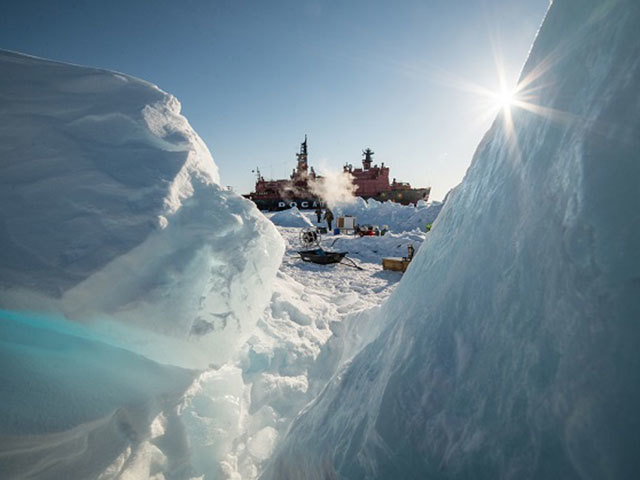
Oil exploration in Norway’s Arctic seems to have lost some of its appeal after a disappointing drilling campaign.
Only 11 companies applied for exploration licenses in the latest round — the nation’s 24th — which focused heavily on the Barents Sea, the Petroleum and Energy Ministry said in a statement on its website on Tuesday. That’s down from 26 in the previous offering and the lowest level since at least 2002, according to records available on the government’s website.
The drop in applicants follows dismal results in the busiest-ever exploration campaign this year in the Barents, which is thought to hold most of Norway’s undiscovered oil and gas. The declining interest is a blow to the Norwegian government, which included a record 93 Barents Sea blocks in an effort to boost activity. Western Europe’s biggest oil and gas producer is betting on Arctic resources to arrest a forecast decline in production from the middle of the next decade.
“The diversity of operators in these areas is very limited,” Anders Holte, an analyst at Danske Bank A/B, said by email. “The results from this year’s exploration by Lundin and Statoil probably didn’t make things better.”
Bad Run
Norwegians are already fiercely debating the future of Arctic drilling, weighing both moral and financial arguments amid efforts to curb climate change. The first oil project in the Barents, Eni SpA’s Goliat, has come under heavy scrutiny for delays, cost overruns and safety incidents. In an unprecedented court case, environmental organizations sued the government over the 23rd licensing round.
The proposal last month by Norway’s sovereign wealth fund, the world’s largest, to get rid of all of its holdings in oil and gas companies only added to the questions about the long-term role of fossil fuels in the Nordic nation.
The industry also got some good news earlier on Tuesday as Statoil ASA decided to go ahead with the $6 billion Johan Castberg oil project in the Barents, after slashing the cost of the development by more than half. While expected, the decision supports the argument that projects in the remote area can be profitable even with crude trading at about $60 a barrel.
To be sure, Norway’s previous license offering had garnered exceptionally strong interest because it included the first entirely new acreage offered to explorers in about 20 years. Also, some companies that applied in the 23rd round no longer operate in Norway. Still, Chevron Corp. and ConocoPhillips, two of the partners in the disappointing Korpfjell exploration well this year, abstained from applying in the 24th round.
“The applicant landscape could indicate that some parties are prioritizing exploration in mature areas this time around,” the Norwegian Petroleum Directorate said on their website.
Other applicants included Aker BP, Centrica Plc, Deutsche Erdoel AG, Rosneft Oil Co. PJSC, Royal Dutch Shell Plc, OMV AG and Wintershall AG. The Petroleum and Energy Ministry expects to award licenses before the summer of 2018.
Recommended for you
